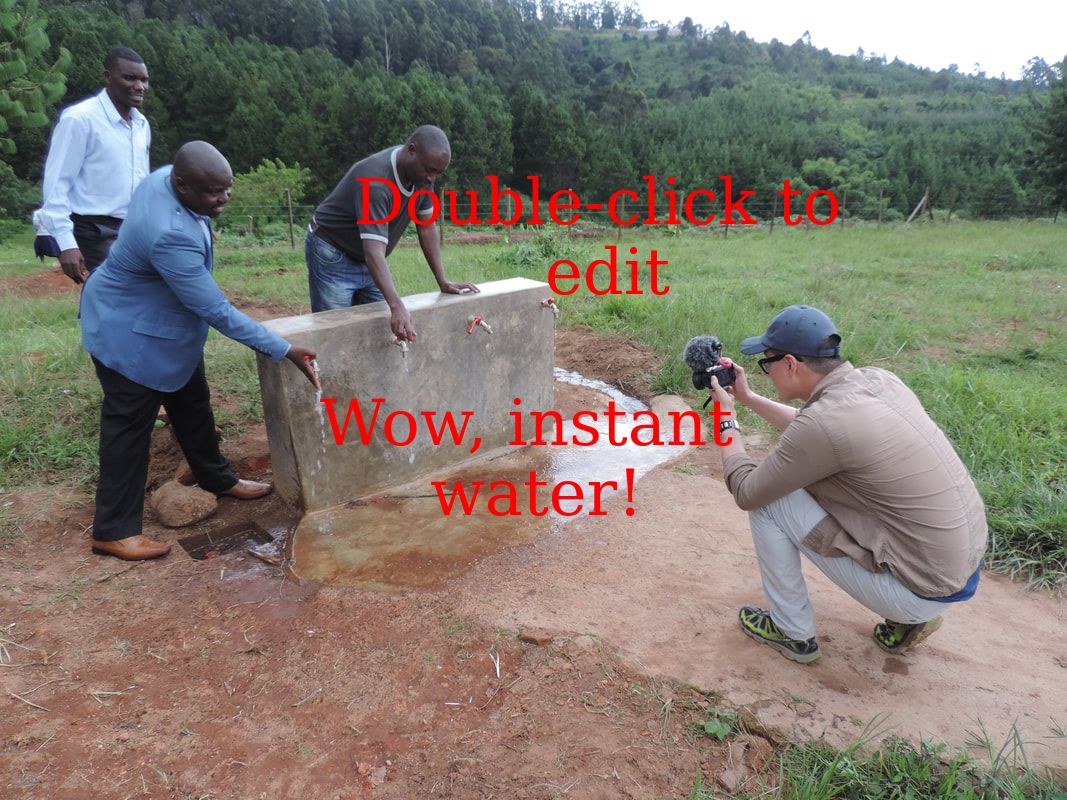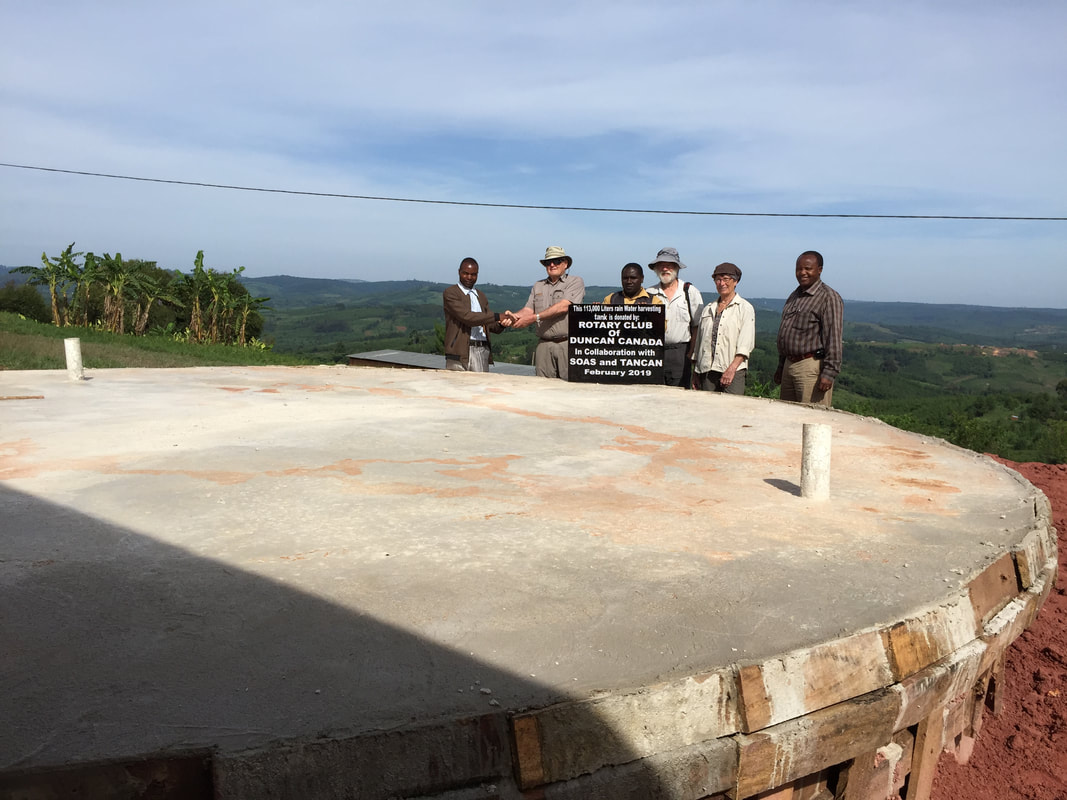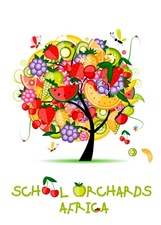
|
|
What does it cost to plant a fruit tree?
The cost of 350 seedlings and transportation to each school is approximately $2000 (US) - about $5.50 per fruit tree. An installed 3000 litre water cistern costs $ 1,500 (US). So the cost of each tree with ongoing care is about $10. Compost is used for organic planting. Installed ground wells are in the $20,000(US) range; 100,000 litre concrete water cisterns $15,000(US); hand water pumps $6000(US).
How does it work?
In Tanzania:
In Canada:
|
|
2019. Duncan Rotary, British Columbia, Canada and Rotary International fund fund two 100,000 litre concrete water cisterns in cooperation with SOAS and TanCan.
|
In this video, the children at both Ikanga and Kidete Rural Primary Schools are being taught how to dig holes, mix loam and plant trees as part of their school lessons. As you will see the children are enthusiastic learners. The water cisterns, provided by SOAS & TanCan, supply water for the fruit trees which they water with great care. Their appreciation and joy are obvious as they break out into song!
How did the vision to create school orchards in Tanzania come about?
The partnership took root during a dusty, bumpy jeep ride en route to the Ruaha game park in Tanzania. Swarms of little children walked along the road on their way to school. Many carried a large hoe over their shoulder. Others carried plastic buckets. Their chores for the day included helping in the fields, and bringing home wood and water. TanCan/SOAS grew from the passionate discourse that filled the jeep for the duration of that journey. The Loiselle's, from BC's Gulf Islands, had met Alban Lutambi, a visionary Tanzanian gentleman of exceptional talent .... a DREAM was born.
TanCan experiments with implementing permaculture gardens
In 2015, SOAS funded the TanCan Co-ordinator, Ottoman Joesph, to attend the level one six week course with Seven Ravens in neighbouring Zanzibar. Ottoman brought his knowledge back to the supporters, teachers and students of our schools. Ottoman also worked alongside Michael Nickels to implement the Mdabulo Secondary School permaculture project in 2017.
A Tanzanian Academy is now in the works which will accept graduating students, teachers, the community-at-large and international students. Ottoman is using the Mdabulo Secondary School, permaculture garden, as his teaching platform.
Seven Ravens, based in Salt Spring, teaches the interconnectedness of all aspects of a healthy, functioning eco system. Covering forest and nursery management, rainwater harvesting, pond systems, fruit and nut growing, perennial and annual gardens, farm business management, land restoration, value adding, alternative energy and implementing these practices in the developing world.


